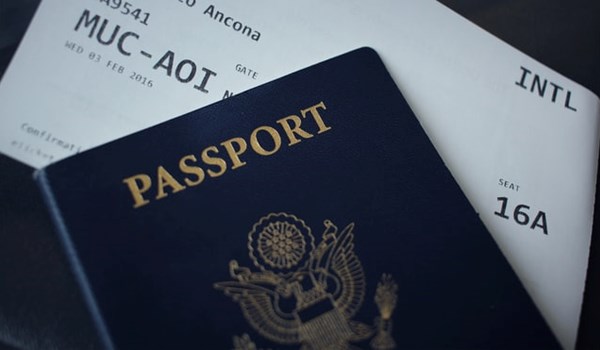Jurisdictions
Regions
Industry Sectors
18/08/21
CITIZENSHIP AND RESIDENCY: Syrian's Vanuatu passport cancelled after revelations about 'honorary citizenship programs'.

As published on abc.net.au, Wednesday 18 August, 2021.
In the midst of the pandemic, Vanuatu's "cash for passports" scheme is helping to keep its economy afloat.
With its tourism industry smashed, the Pacific nation last year generated $175 million — 35 per cent of total government revenue — from its "honorary citizenship programs".
However, after a Guardian investigation discovered that recipients included a "slew of disgraced businesspeople and individuals sought by police" — including Australians — the government is facing a tough choice between potential international sanctions or domestic economic pain.
Vanuatu's first citizenship by investment scheme, known as "cash for passports" locally, was introduced in 2014 and has had several iterations since, including one intended to raise money after Cyclone Pam caused widespread devastation in 2015.
Many countries have similar schemes, including Australia, but usually, applicants are required to become permanent residents first and then only after a number of years do they become eligible to become a citizen.
Under Vanuatu's scheme, successful applicants can become citizens within a matter of months and there is no requirement to reside in the country or even set foot on Vanuatu soil at all.
It costs around $US150,000 ($200,000) for a single application and more for couples and families. Most of the passports, which allow free access to any EU country, are sold to people from mainland China.
It has long been controversial, but the scheme came under increased scrutiny in July after the Guardian investigation was published.
Last week, the Vanuatu government revealed that the Vanuatu citizenship of a Syrian businessman referred to in the report, Abdul Rhama Khiti, had been revoked.
Vanuatu's Citizenship Commission chair Ronald Warsal told the ABC's Pacific Beat program the US government had imposed sanctions against Mr Khiti's businesses just weeks after he had made his application.
"After the article came out in The Guardian and during the course of the investigation by our Financial Intelligence Unit [FIU] it was decided to have it revoked and money he has paid to be forfeited into government coffers," Mr Warsal said.
He said the government was investigating more of those mentioned in the article and others that were not.
"It's an ongoing thing," he said.
"We want to ensure that people who come to Vanuatu, who obtain Vanuatu citizenship, are not wanted abroad [and] are not fugitives."
Transparency International Vanuatu chief executive Willie Tokon said it was worrying that the Syrian businessman was able to get approval in the first place and that his citizenship was only revoked when the matter was raised in the media.
"My worry is how come we have all these allegations but the screening by [the] Citizenship Commission and Financial Intelligence Unit didn't come up with this allegation," Mr Tokon said.
He said if Vanuatu did not have the capacity to thoroughly vet applicants, it should seek help from Interpol and other agencies.
"If there's no other way to do it, do it properly. If we don't have the capacity, we have very strong support from the Australian government in terms of the AFP, they're providing a lot of support. It needs to be done properly," he said.
But Mr Warsal said the government had systems in place to do character checks.
"We do [make] the final decision but … it goes through certain processes," he said, saying it was down to teamwork between immigration, the FIU and the police.
Economics professor Stephen Howes, from the Australian National University, said mishandling of the citizenship programs could have a couple of negative consequences for Vanuatu.
Mr Howes said Vanuatu could become seen as a "risky" country for banks to operate in, or even get added to international money laundering grey or blacklists, which would threaten the country's ability to access international finance.
"That would further isolate the country and make it harder to form international financial links," he said.
It could also diminish the value of Vanuatu passports, making it more difficult for Vanuatu citizens to travel.
"Vanuatu citizens might suffer as well if other countries decide that they don't trust that someone with a valid Vanuatu passport is actually a bonafide Vanuatu citizen," he said.
On the flip side, if Vanuatu did decide to scrap the citizenship schemes, then they would lose the revenue the country needs to support the population during the pandemic-related economic crisis.
Mr Howes said it was more likely the government would bring in reforms and tighten up the application process.
He said actions like cancelling the citizenship of those like Mr Khiti would show they "won't take just anyone".
"If they can show [they have a serious vetting process], that will instil more confidence into the scheme," he said.
He said abandoning the "unorthodox" source of revenue would be a "really extreme step".
Not everyone who wanted citizenship of another country and could afford to buy it was necessarily of bad character, he said.
"Think about the uncertainties in China, some people just want a safety net," he said.
"The world's a very uncertain place. So I don't think it means you're a criminal [if you want to buy citizenship].
"I think it could also mean you're worried about the future of your country."



